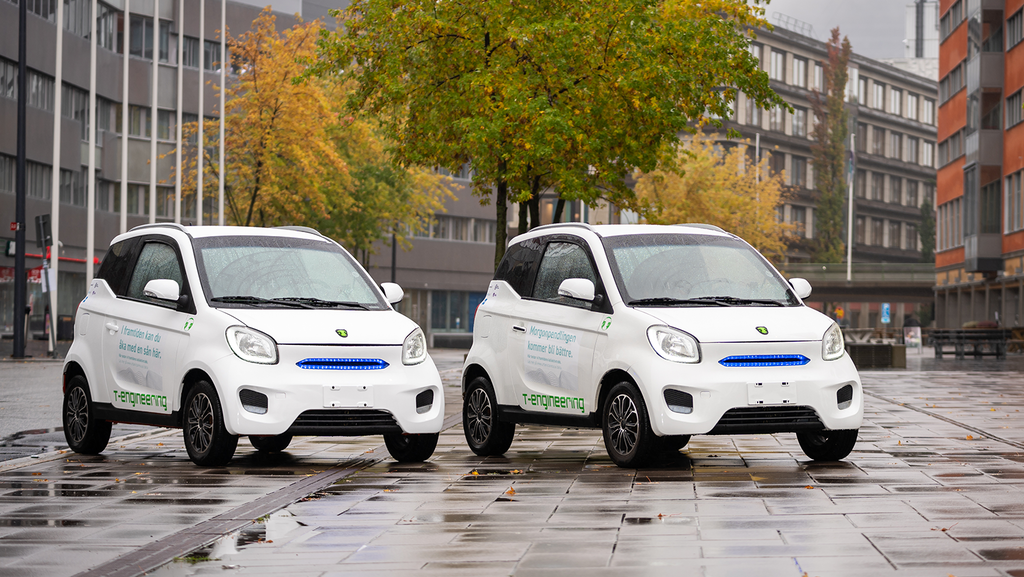Last mile solution for public transport is being tested in Kista
Over the next two months, two connected cars will be in service on the streets of Kista. The cars are part of a pilot project, where a service for future public transport is tested. Participants can book trips with an app and be picked up at major transport hubs and driven all the way to their destination. The aim of the test is to analyze behavioral patterns for car sharing services in public transport, find business models and adapt the technology.

In the future, ridesharing services will become part of ordinary public transport. You will be able to travel long distances with high-capacity public transport, such as commuter trains or subways, and travel the last kilometer to the home or office with a ridesharing service. This is a first step towards implementing a service like this in Kista.
A focus group consisting of people who work, study or live in Kista will have the opportunity to book trips with two electrical and connected cars. The cars will be in service in Kista until the turn of the year. The cars communicate via the mobile network with a control tower, where the movements and surroundings are monitored. This lays the foundation to be able to drive these vehicles without a driver in the future, with the help of a control tower.
The participants will answer questions regarding their travel patterns and the way they travel will be analyzed. This will form the basis for new tests in the future, where more than one person can travel in the same vehicle.
– Connected cars of this kind means that in the long run, we will be able to travel by public transport all the way from our home to our destination. By then, public transport can compete with cars on a completely new level, says Jan Kilström, CEO of Keolis.
Due to the corona pandemic, only the participants in the focus groups can book trips. In addition, the cars have been equipped with protection between drivers and passengers. There will also be masks on board.
– We know that these kinds of tests, in real street environments and with many kinds of users, are very important for the development of new technologies. We hope that the cars will create curiosity and we hope to be able to test similar services with the help of the public in the future, says Johanna Engman, CEO of Kista Science City AB.
– The test in Kista is a great example of how we, together, develop and demonstrate efficient, connected and automated transport systems that are sustainable, safe and accessible for all, says Sofie Vennersten, program director at Drive Sweden.
Behind the test is Urban ICT Arena, which is run by Kista Science City AB. Project partners are traffic operator Keolis, Ericsson, Telia and Intel with support from Vinnova and Drive Sweden. It is the same partners who took part in the 5G Ride project, a high-profile test with a 5G-connected self-driving vehicle at Royal Djurgården. T-Engineering delivers the vehicles for the test and Freelway provides the app used to book the trips.


